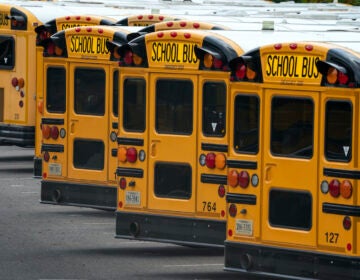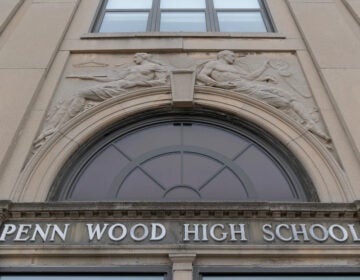Chesco residents demand transparency, accountability from Great Valley School District amid TikTok controversy
One parent said her daughter was targeted on TikTok a month after teachers fell victim to an online harassment campaign. She said the district’s response was lackluster.
Listen 1:12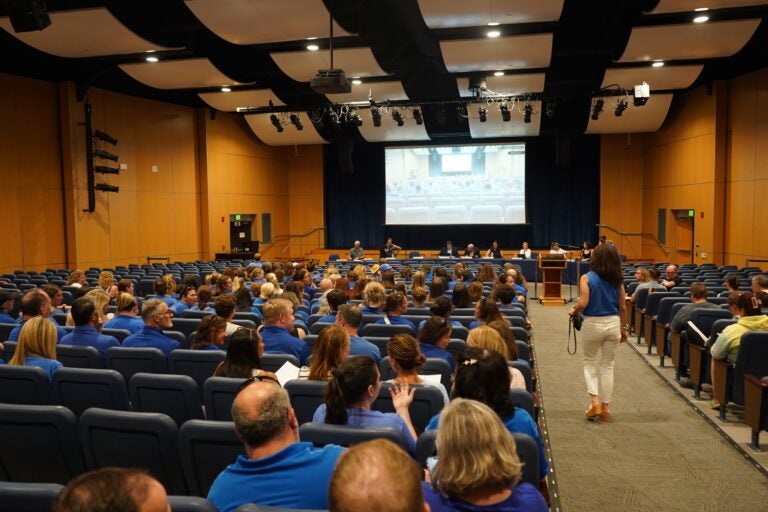
Great Valley Education Association President Nikki Salvatico walks down the aisle in the auditorium after ushering the other teachers in. (Kenny Cooper/WHYY News)
From Delco to Chesco and Montco to Bucks, what about life in Philly’s suburbs do you want WHYY News to cover? Let us know!
More than 200 community members, majority of them educators, packed into the Great Valley High School auditorium Monday night to process and seek solutions in the aftermath of The New York Times story about a group of middle schoolers who targeted their teachers on TikTok.
The teacher’s union turned up in solidarity with affected teachers, following through on a promise. They arrived wearing blue, the district’s school colors.
“Right now, we have a unique opportunity and more importantly — a responsibility to show that schools are welcoming to all,” said Nikki Salvatico, president of the Great Valley Education Association.
To re-establish trust, the teachers must have a voice in policy discussions moving forward, she said. She reiterated calls for a digital citizenship curriculum, a new technology and social media policy and clearer accountability guidelines.
The union’s presence was an olive branch and the board was urged to take it.
“We hope that this horrible storyline is the impetus of change here and beyond,” Salvatico said. “No one should feel attacked, threatened or harassed within our school community or anyone else’s. This is the time to act.”
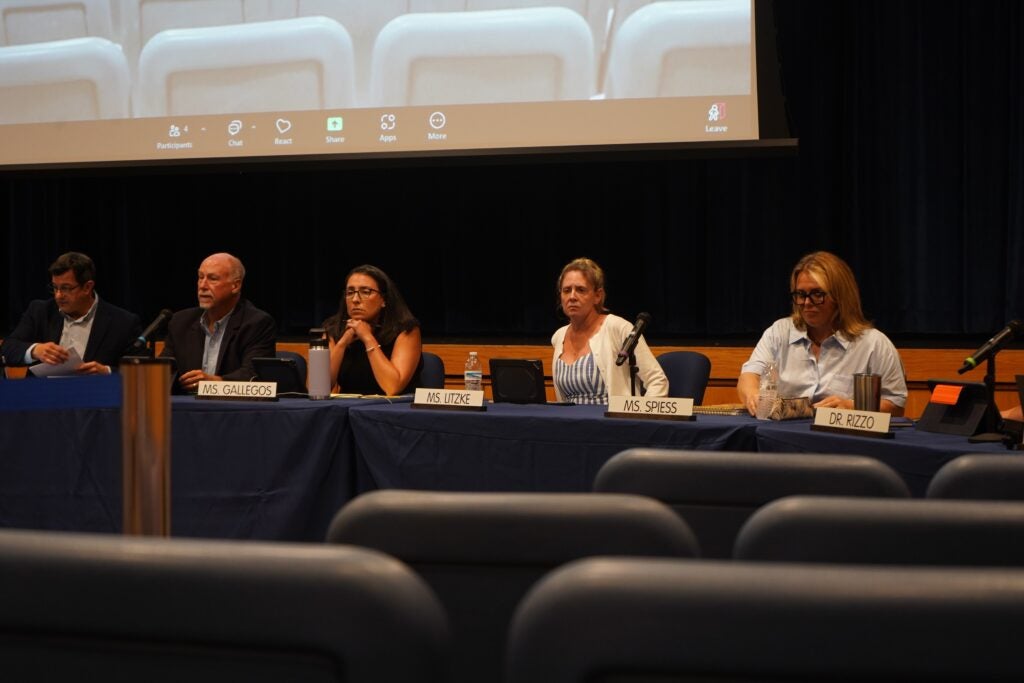
This was the first time that the eight-member school board convened, since news broke about few seventh- and eighth-graders concocting fake TikTok accounts, impersonating 22 teachers and posting what the New York Times called “disparaging, lewd, racist and homophobic videos in the first known mass attack of its kind in the U.S.”
The incident first occurred in February, but the national spotlight earlier this month sent the community into a frenzy.
The Great Valley School District serves approximately 5,000 students from Malvern Borough, as well as Charlestown, East Whiteland and Willistown townships. Concerned parents on Monday night gave emotional testimonies, expressing their anger, hurt and disappointment with the administration for their lack of action, accountability and transparency. They voiced their angst that the incident earned this close-knit community national notoriety.
Parent finds similarities in how Great Valley handled the TikTok issue — and her daughter’s bully
To some, the school’s placement in the nation’s paper of record was a surprise, but to others, it was indicative of a larger culture of inaction within the school’s administration.
Superintendent Dr. Daniel Goffredo apologized to teachers and told the audience that he’s committed to working through the summer with staff to “re-establish a culture of trust within the district.” He said that the district has already identified key areas of improvement through listening sessions with educators.
“One area involved a review of district policies, which has already begun, and that review addresses student conduct, the use of technology and safeguards for staff,” he said.
Goffredo underscored the need for partnership between educators and parents to address the problem.
“We have often said that our greatest asset is our collaboration between the home and school,” Goffredo said. “And we must now stand together — our school board, our administration, our teachers, our staff and our families — so that students understand the serious and long-lasting impact of their actions.”
Amanda Thomas, of Willistown Township, told the board during public comment that like the teachers, her daughter experienced cyberbullying.Thomas approached school officials with evidence, but their reaction was lukewarm. Then, in March, the situation escalated.
“My daughter was made aware of a TikTok account that was dedicated to telling her to kill herself,” Thomas said. “This account was made by a child that has previously been documented as being a bully of my daughter for at least the previous five years.”
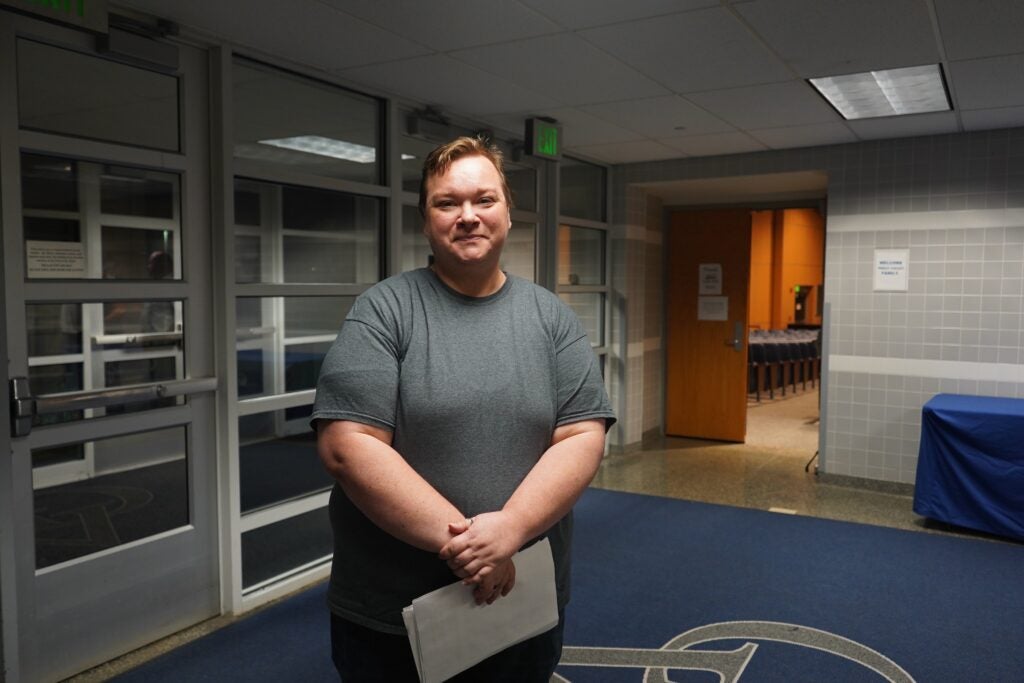
The district responded by moving the other child’s locker away from her daughter. To her knowledge, there was no disciplinary action. Thomas told WHYY News that she was “elated” when she heard that the district’s issue with bullying and social media finally caught the media’s attention.
“However, what I want to change is their cyberbullying and their bullying policies. If children are held accountable, then maybe this will stop — maybe it’ll limit some of it,” Thomas said.
Affected teachers inundated with community support
Bettina Scibilia, who was impersonated on TikTok, didn’t know what to expect ahead of Monday’s meeting. The English teacher said she was pleased to see parents come out in support.
“Certainly the one parent who was talking about bullying with the student. That’s where our hearts have always been,” Scibilia said. “If this is happening to us, then what’s happening to students that we’re not aware of? So, I’m hoping that these policy changes will help protect our students as well.”
When asked if any of the accounts have re-emerged, Scibilia said that she has not seen any since her latest check. Scibilia said teachers have had to take it upon themselves to monitor social media for impersonators.
“We were told many times to stop looking for them, but we were concerned that they were in our name and that they were putting that hatred out into the world,” Scibilia said. “So, I haven’t seen any recently but I would not be surprised if they continue throughout the summer.”
Patrice Motz, who teaches Spanish — and the first educator mentioned in the New York Times piece — was away on vacation when the story was published. She said she has been inundated with messages of support from teachers and students across the country.
“They felt heard, which was great, because this isn’t just a Great Valley–thing,” Motz said. “This is happening everywhere and I think the only reason why this garnered attention was that there were so many of us.”
She said there was a feeling at one point in the year that all her colleagues will become victims “eventually.”
“We just need everyone to feel safe in our school building so that we can move on,” Motz said.
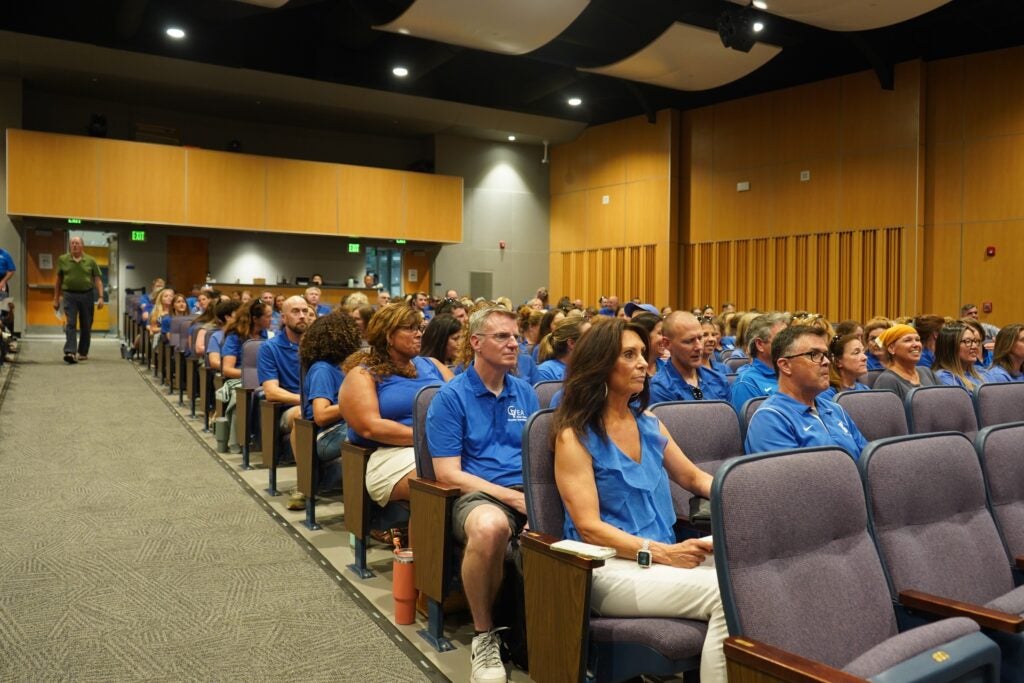
Scibilia said none of the teachers are seeking revenge and some of the vitriol directed at the student perpetrators made her uncomfortable. She emphasized that she’s not a believer in “demonizing students” — she’s a believer in giving students grace and accountability. She wants to restore a culture of empathy within the classroom and the district.
“Nobody was looking for a revenge story,” Scibilia said. “All I ever wanted was an authentic apology and commitment from our school community to help students understand why this was so wrong.”

Get daily updates from WHYY News!
WHYY is your source for fact-based, in-depth journalism and information. As a nonprofit organization, we rely on financial support from readers like you. Please give today.



